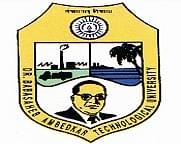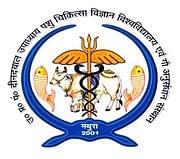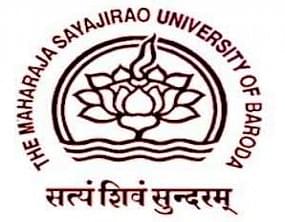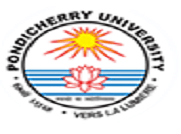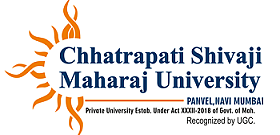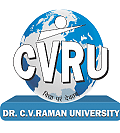Ph. D Home Science : Introduction , Admission , Syllabus , Scopes
Introduction about Ph. D Home Science
The best Ph. D college in Home Science is an advanced academic degree program that
focuses on the interdisciplinary study of various aspects related to home and
family life. It delves into areas such as nutrition, human development, family
relations, textiles, clothing, interior design, and resource management, among
others. Home Science, also known as Family and Consumer Sciences in some
regions, integrates scientific principles with practical applications to
enhance the well-being and quality of life for individuals and families.
In a Ph.D. program
in Home Science, students typically engage in advanced research, exploring
topics such as nutritional science, child development, family dynamics,
consumer behavior, textile technology, and sustainable living practices. They
often conduct original research studies, contribute to the existing body of
knowledge in the field, and may specialize in specific areas of interest within
Home Science.
The
interdisciplinary nature of Home Science allows students to draw from various
fields such as biology, psychology, sociology, and design to address complex
issues related to family life, household management, and community well-being.
Graduates of Ph.D. programs in Home Science are prepared for careers in
academia, research institutions, government agencies, non-profit organizations,
and industries related to food, textiles, and consumer products. They play a
crucial role in advancing knowledge and practices that promote healthy living,
sustainable lifestyles, and thriving communities.
What is admission process for Ph. D Home Science ?
The admission process for Ph.D. in Home Science at best college typically varies from one institution to another, but there
are some common steps and requirements that you might encounter. Here's an
overview:
Research Programs
and Institutions: First,
you should research the various institutions offering Ph.D. programs in Home
Science. Look for universities with strong faculties in Home Science, relevant
research facilities, and programs that align with your research interests and
career goals.
Eligibility
Criteria: Most institutions
have specific eligibility criteria for admission to their Ph.D. programs.
Typically, you need a Master's degree in Home Science or a related field from a
recognized university. Some institutions may also require a minimum GPA (Grade
Point Average) in your Master's coursework.
Entrance
Examination: Many
universities require candidates to take an entrance examination as part of the
admission process. These exams may assess your knowledge in subjects related to
Home Science, research aptitude, and general awareness. The format and content
of these exams can vary, so it's essential to check the specific requirements
of each institution.
Application Process: Once you've identified the programs you're
interested in, you'll need to submit an application. This typically involves
filling out an online application form and providing supporting documents such
as academic transcripts, letters of recommendation, a statement of purpose
outlining your research interests and goals, and sometimes a research proposal.
Interview: Some institutions may require shortlisted
candidates to attend an interview as part of the selection process. During the
interview, you may be asked about your research interests, academic background,
and future career plans. It's essential to prepare thoroughly and articulate
your passion for Home Science and your potential contributions to the field.
Selection: After evaluating all applications and
conducting interviews (if applicable), the university's selection committee
will make decisions regarding admission. Successful candidates will receive
admission offers, typically accompanied by details about enrolment procedures,
fees, and other relevant information.
Enrolment: Once you receive an admission offer,
you'll need to complete the enrolment process according to the university's
instructions. This usually involves paying the necessary fees, submitting
additional documents if required, and registering for courses.
It's crucial to
carefully review the admission requirements and deadlines for each institution
you're interested in and to prepare your application materials thoroughly.
Additionally, reaching out to faculty members in your area of interest can be
helpful for gathering more information about specific programs and
opportunities for research collaboration.
What is eligibility for Ph. D Home Science ?
The eligibility criteria for Ph.D. Home Science can vary depending on the
institution and country where you're applying. However, there are some common
requirements that you'll typically encounter:
Master's Degree: Most institutions require candidates to
have a Master's degree in Home Science or a closely related field. The Master's
degree should be from a recognized university or institution.
Minimum GPA: Some universities may specify a minimum
Grade Point Average (GPA) or equivalent academic performance in your Master's
degree coursework. This requirement ensures that candidates have a strong
academic foundation for doctoral-level studies.
Entrance
Examination: Many
institutions conduct entrance examinations as part of the admission process for
Ph.D. programs. These exams may assess your knowledge in subjects related to
Home Science, research aptitude, and general awareness. It's essential to check
the specific requirements of each institution regarding entrance exams.
Research Proposal: In addition to meeting academic
qualifications, candidates may be required to submit a research proposal
outlining their intended research topic, objectives, methodology, and potential
contributions to the field of Home Science. This proposal helps admission
committees evaluate the candidate's research aptitude and alignment with the
program's focus areas.
Work Experience: While not always mandatory, some
institutions may prefer candidates with relevant work experience in areas
related to Home Science, such as teaching, research, or professional practice.
Previous experience can demonstrate your commitment to the field and provide
valuable insights for doctoral research.
Language
Proficiency: If the
language of instruction at the institution is different from your native
language, you may need to demonstrate proficiency in the language through
standardized tests such as the TOEFL (Test of English as a Foreign Language) or
IELTS (International English Language Testing System).
Letters of
Recommendation: Most Ph.D.
programs require applicants to submit letters of recommendation from academic
or professional references who can attest to their qualifications, research
potential, and suitability for doctoral studies.
Statement of
Purpose: Candidates are
often asked to submit a statement of purpose outlining their academic
background, research interests, career goals, and reasons for pursuing a Ph.D.
in Home Science at the institution.
It's essential to
carefully review the specific eligibility criteria and admission requirements
of each institution you're interested in, as they may vary. Additionally,
reaching out to the admissions office or program coordinator can provide you
with further clarification and guidance on the application process.
What is syllabus of Ph. D Home Science ?
The syllabus for a Ph.D. Home Science can vary significantly
depending on the institution offering the program, as well as the specific
focus areas within Home Science chosen by the student and their research
interests. However, I can provide a general overview of some common areas of
study that may be included in a Ph.D. program in Home Science:
Research
Methodology: This course
typically covers various research methodologies, including qualitative and
quantitative research methods, experimental design, data analysis techniques,
and ethical considerations in research.
Advanced Topics in
Home Science: Courses in
advanced topics may cover areas such as:
Nutrition and
Dietetics: Advanced study of nutritional science, dietary patterns, nutritional
assessment methods, therapeutic nutrition, and nutritional interventions for
health promotion and disease prevention.
Human Development
and Family Studies: In-depth exploration of human development across the
lifespan, family dynamics, parent-child relationships, family systems theory,
and intervention strategies to support family well-being.
Textile Science and
Clothing Technology: Advanced study of textile fibers, fabric construction,
textile testing methods, apparel design principles, clothing technology, and
sustainable fashion practices.
Housing and
Interior Design: Advanced topics in interior design principles, space planning,
environmental psychology, sustainable design practices, and building materials.
Specialized
Elective Courses: Students
may have the opportunity to select elective courses based on their research
interests and career goals. These courses could include specialized topics in
Home Science or related disciplines such as psychology, sociology, public
health, or environmental science.
Seminar Series: Ph.D. programs often include seminar
series where students present their research findings, discuss current topics
in Home Science, and engage in scholarly discussions with faculty and peers.
Independent
Research and Dissertation:
A significant portion of the Ph.D. program is dedicated to independent research
under the guidance of a faculty advisor. Students conduct original research,
write a dissertation documenting their research findings, and defend their
dissertation orally in front of a committee of faculty members.
Teaching Practicum
(Optional): Some programs
may offer opportunities for students to gain teaching experience through a
teaching practicum or assistantship. This experience can be valuable for
students pursuing academic careers or roles in education and outreach.
It's important to
note that the specific courses and requirements may vary depending on the
institution and the student's chosen area of specialization within Home
Science. Prospective students should carefully review the curriculum and course
offerings of each Ph.D. program to ensure alignment with their research
interests and academic goals.





